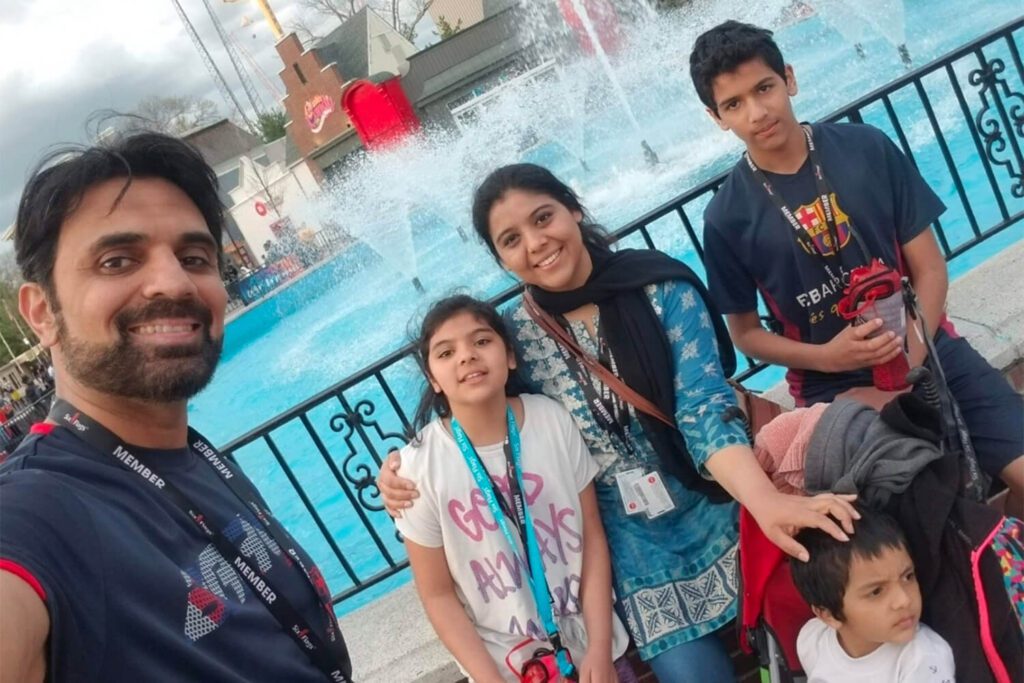Gratitude is abundant at Fresh Meals on Wheels
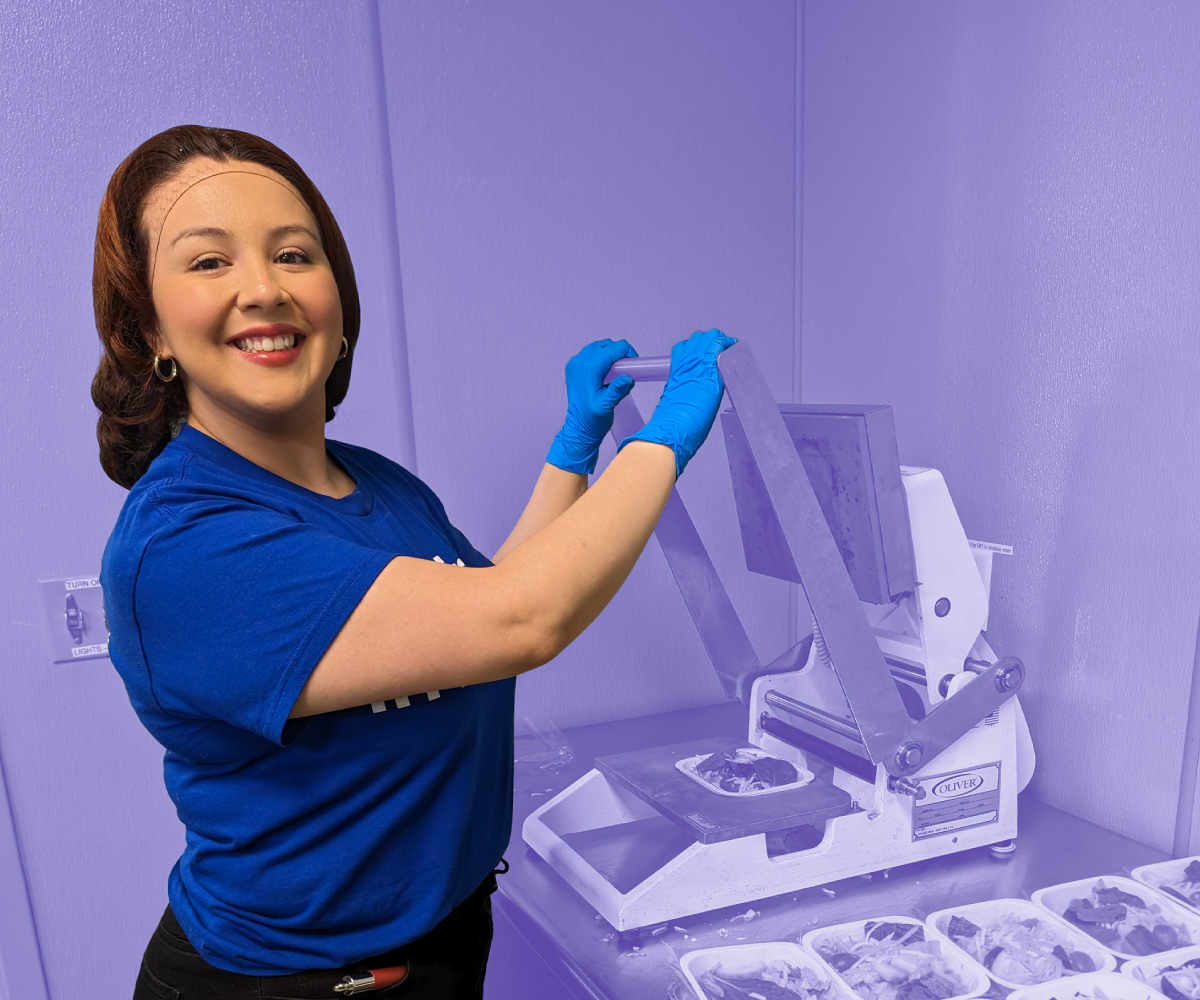
Overview
Community-grown holiday cheer
During the holiday season, the dinner table is front and center, and for good reason. Food brings people together and builds culture. No one knows that need better than Meals on Wheels.
Since 1970, Fresh Meals on Wheels of Sheboygan County (then just Meals on Wheels) has served Sheboygan, Wisconsin and surrounding areas with meals and personal visits. When they acquired a new space and garden in 2012, they changed their name to Fresh Meals on Wheels to describe their community-grown produce meal options. The independent nonprofit now delivers farm-fresh meals to more than 350 community members each day.
“While our mission is to feed people who are homebound and elderly, we’re not limited to that,” says Allison Laine Thompson, CEO of Fresh Meals on Wheels of Sheboygan County. “You might be a single mom who is 24 and in a domestic situation where you’re living in a hotel and need meals temporarily, or you might be somebody who’s in their 50s and had knee surgery, or you could be a 70-year-old going through cancer treatment. We are able to help everyone.”
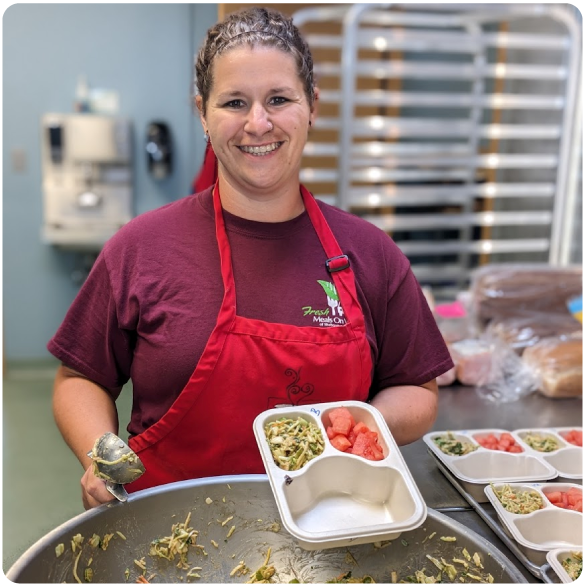
Thanksgiving and the winter holiday season are busy times for FMOW, often because that’s when families realize that their loved one would benefit from extra help. For those who volunteer with the organization, food is how they care for vulnerable community members and build connections.
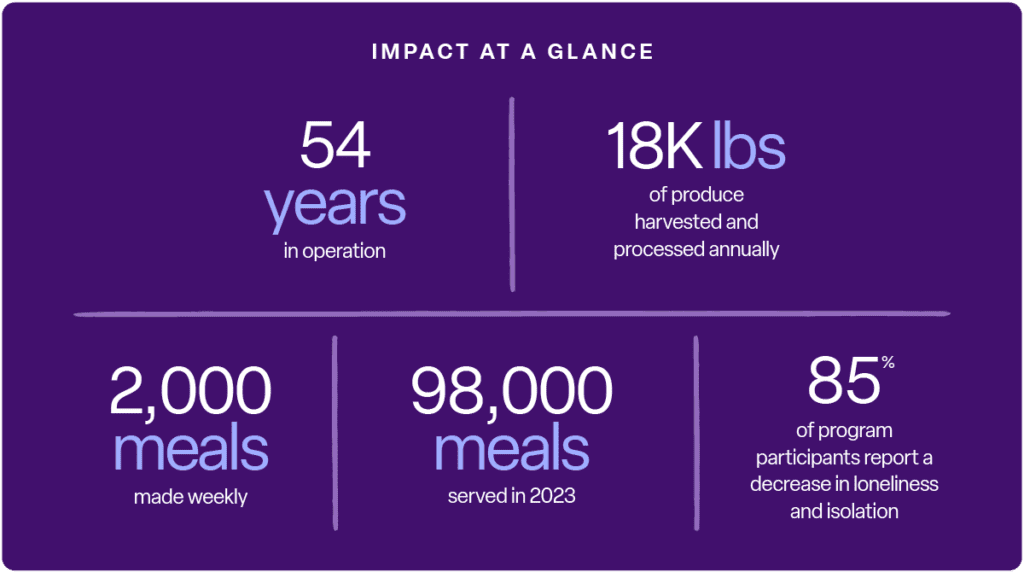
Challenges
Looking for hands-on help
Almost 7 million seniors were food insecure in 2022. Many factors put seniors at higher risk for malnutrition, including health conditions, lack of transportation, living on a fixed income, and social isolation. “Older adults often don’t want to ask for help. It’s an honor to show some extra kindness and bring them a hot meal,” says Allison.
The cold Wisconsin winters also complicate the ease of getting around. “It’s slippery outside and dangerous for those who are elderly or struggling with walking, so getting meals during the winter months is imperative for their well-being,” says Allison.
The organization’s short-term goal is to find more people to reach and serve, although the data on potential clients isn’t always easy to track. “People know we exist, but they don’t remember until there’s a need. So, communicating out to the community that we’re here and a resource to them is a constant need for us.”
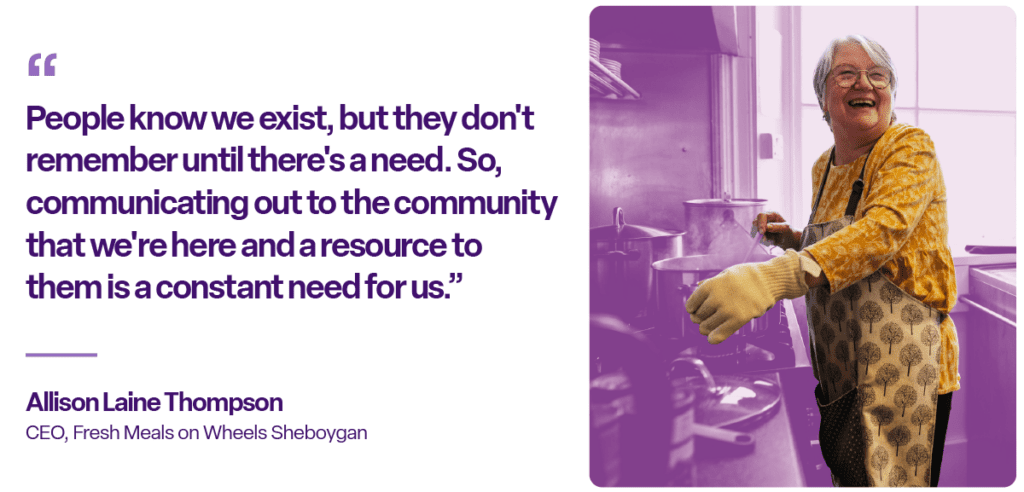
Much of the organization’s operations are run on custom databases, but disparate systems made communication difficult when reaching funders. So in 2023, FMOW made the decision to have their fundraising and engagement supported by Bonterra Network for Good.
Solution
Building relationships with donors
In a farming community like Sheboygan, fresh produce isn’t a novelty: It’s tradition. “People want to be served what they ate growing up, so that was the impetus that started the whole fresh meals program,” says Allison.
Medically tailored meals are also available, including low-carb, lactose-free, gluten-free, and low-sodium options. “We have a dietitian on staff who makes sure that what people are getting matches the needs they have,” she says.
The value of FMOW goes far beyond putting food on the table; it also offers an opportunity for volunteers to perform wellness checks and make connections. The service is often the extra boost that allows people to remain in their homes, independent and healthy. “It’s so much fun and rewarding,” says Allison. “We’ll have people who deliver meals send us thank-yous. They get so much joy out of it, building those relationships.”
FMOW hosts several events throughout the year to engage donors. Their decision to partner with Bonterra proved especially fortunate in 2024 in light of severe weather events.
The June-A-Palooza event was promoted as “a Parisian experience” at a local private botanical garden. Unfortunately, it began pouring rain, so much so that organizers had to rethink where they’d hold the event just hours before it opened.
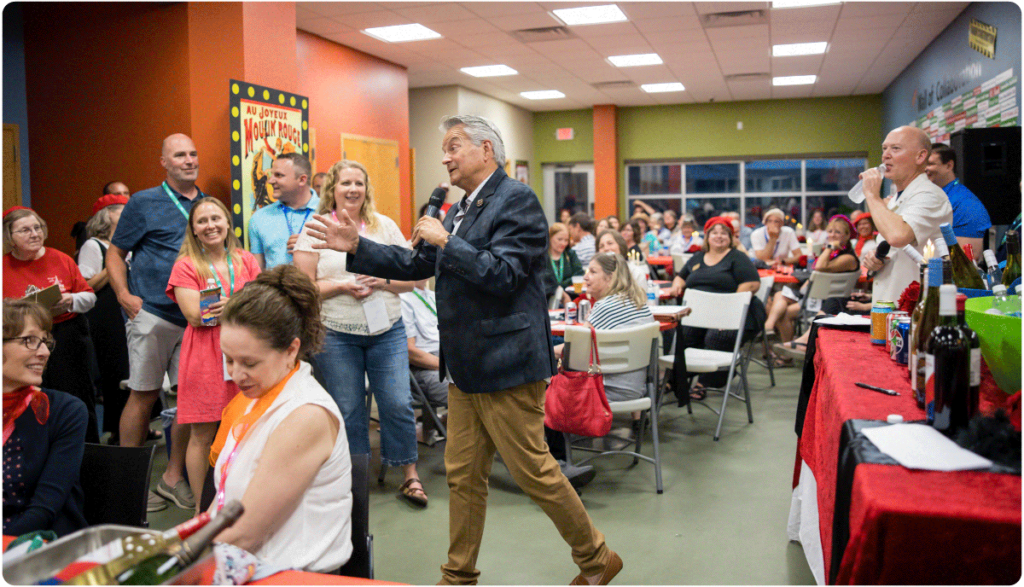
They made the difficult decision at the last minute to host it indoors at FMOW’s building. The move risked confusing their 300 attendees and compromising one of their biggest fundraising opportunities. But Bonterra’s fundraising and engagement software helped them adapt to the weather challenges and inform attendees.
“We were able to use the messaging system and communicate to every guest who signed up,” says Allison. They immediately sent out messages with apologies and directions to the new venue. June-A-Palooza was a success, and FMOW gained a new appreciation for its location and technical abilities, still managing a profit of more than $85,000 despite last-minute changes.
Impact
Every day offers a reason to give thanks
More than 40 volunteers head out every day to deliver meals and visit with recipients. “We get compliments all the time about how easy it is,” says Allison. Routes are in order and details are provided on how and where to deliver, down to the name of the dog they’ll encounter in the yard. Nearly 800 volunteers contribute their time every year toward food prep, delivery, gardening, events, and administration. This has led to 85% of program participants reporting a reduction in loneliness and isolation.
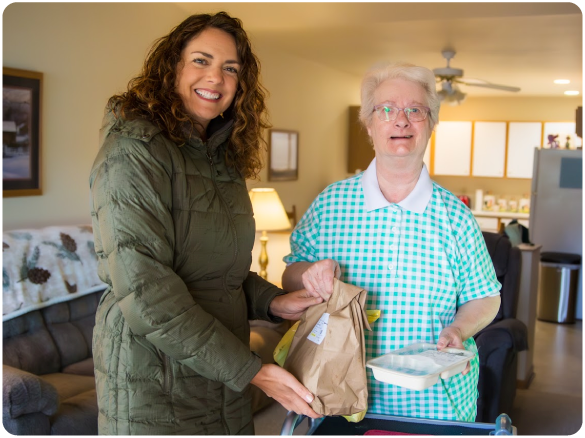
FMOW also works with the local public library to do book exchanges as meals are delivered. Combined with the meals and wellness checks, residents are able to remain independent at times in their lives when it might otherwise be impossible. Looking toward the future, Allison says FMOW’s ongoing goal is helping more people in a larger geographic area.
“Twenty-two percent of the people who leave our program do so because they are better,” says Allison. “What a great success rate. They are feeling better, and they’re going on and living their life.” For those who stay in the program, FMOW helps on a daily basis. “People are able to be well at home where they want to be, just enjoying what they do and living their life and understanding that they matter to us.”
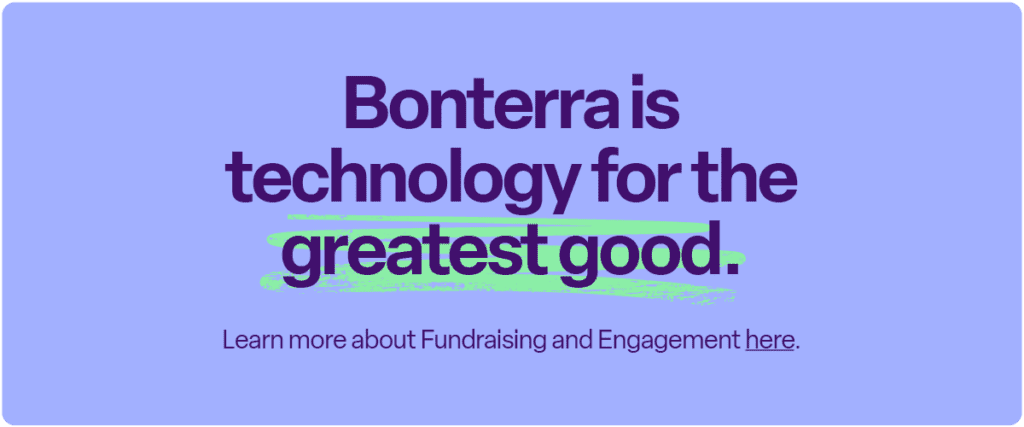
Work with Bonterra


